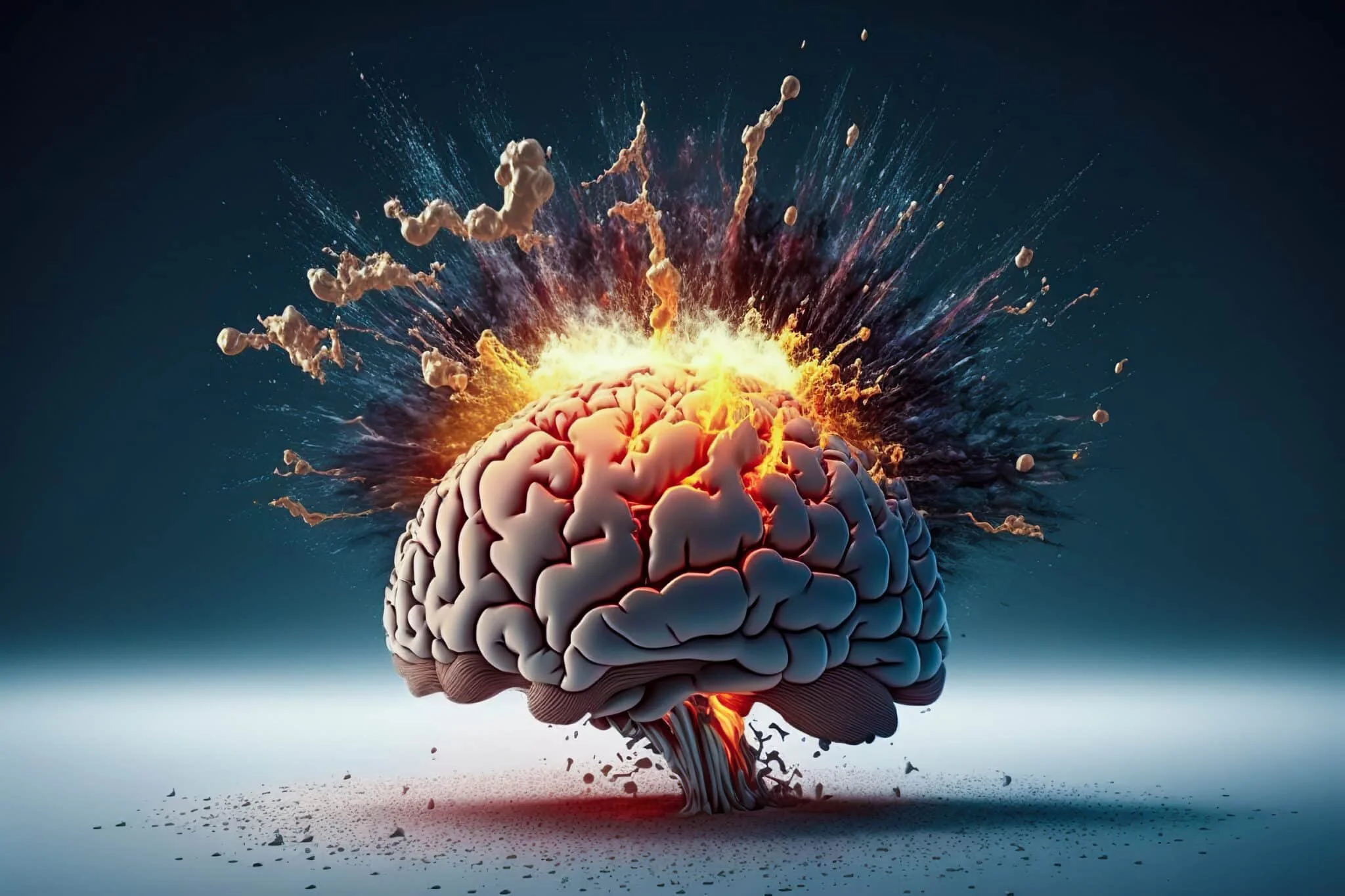The Noise and Mental Health Consequences: Part 2
Relentless negative noise can make it feel as if your brain is on fire.
When powerful marketing engines and media outlets push polarizing messages and misleading ads, they do more than erode public trust—they undermine democracy and the credibility of leadership itself. The result is a widespread deterioration of truth, mental well-being, and collective tranquility.
In today’s digital environment, Americans are bombarded with between 4,000 and 10,000 messages a day. This deluge doesn’t just overwhelm—it fundamentally rewires how our brains function. The constant stream of alerts, updates, and data triggers the body’s stress response, flooding our system with cortisol and impairing the prefrontal cortex, the part of the brain responsible for decision-making, critical thinking, and self-regulation. In short, the more information we consume, the less capable we become of meaningfully processing it or taking thoughtful action.
This creates a vicious cycle: the more we engage with information, the more mentally fatigued we become. Terms like “decision fatigue” and “attention residue” are no longer abstract concepts—they describe the lived experience of many Americans who struggle to focus, make decisions, or stay informed amid a sea of competing headlines.
Recent political transitions and a relentless news cycle have only intensified this psychological strain. Conflicting narratives, divisive rhetoric, and high-stakes uncertainty keep many Americans in a constant state of alert. Social media platforms, which amplify content designed to provoke outrage, further entrench users in information silos that deepen polarization and fray social cohesion. The consequences are deeply troubling. Instead of motivating civic engagement, this constant overload often results in disengagement. More people are “tuning out” from the news entirely as a means of self-preservation, at a time when informed citizenship is more critical than ever.
This cognitive exhaustion is further compounded by rising economic anxiety. Inflation, the threat of recession, and shifting policy landscapes—such as the introduction of new tariffs—have left Americans worried about their financial futures. While personal financial assessments are slightly more hopeful than perceptions of the national economy, concern remains high. A recent survey found that 78% of Americans are worried about the economy, with 61% fearing a recession. This anxiety crosses party lines, affecting Democrats (91%), independents (82%), and even a majority of Republicans (64%).
Despite this, many Americans still feel the pinch on a personal level. While only 26% describe their financial situation as bad or very bad, a full 75% are concerned about the rising cost of living, and 60% say their income isn’t keeping pace with expenses. To address these growing pressures, communities must take an active role in building healthier media environments.
This means not only strengthening digital literacy—teaching individuals how to critically evaluate information—but also advocating for more responsible, mindful marketing practices. The issue isn’t just personal screen time; it’s how content is delivered and the emotional manipulation embedded in much of today’s messaging. Strengthening mental health support systems is equally critical. Many Americans are experiencing real psychological distress as a result of political and informational chaos, and professional care, not just self-help, is essential.
Community-level interventions offer a promising path forward. Local initiatives can foster what might be called “information sanctuaries”—spaces where citizens engage with media more intentionally and support each other in navigating the noise. These small-scale solutions can have an immediate impact, even as broader policy discussions continue to unfold. Ultimately, this multi-pronged approach—centered on education, media reform, mental health care, and local action—can begin to counteract the damage of information overload and restore a sense of clarity, calm, and civic engagement in American life.

